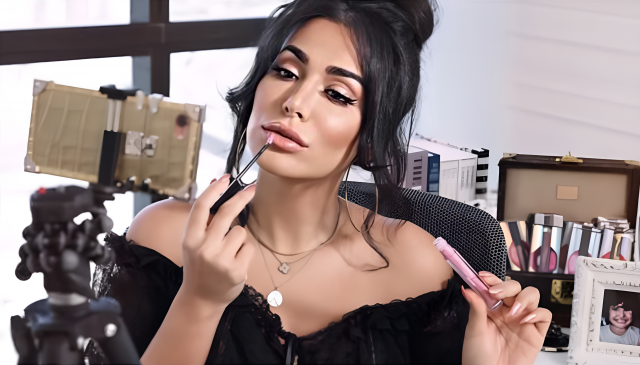AI-generated influencers challenge human counterparts for spotlight
Rise of AI in influencer sphere sparks concerns about spread of deepfake technology

A new wave of influencers is emerging, and they're entirely digital. Meet Aitana Lopez, a vibrant Instagram personality with over 300,000 followers, adorning pink hair and an array of trendy outfits. But there's a twist—Aitana is not a real person. She's the brainchild of The Clueless, a Barcelona-based company pioneering AI-generated influencers.
Talking to AFP, Sofia Novales, project manager at The Clueless, sheds light on the motivation behind their venture: the escalating costs associated with human influencers and the unparalleled creative control offered by virtual models. With AI, they can curate content seamlessly without the constraints of physical photoshoots.
“The advantages lie in unparalleled creative control, allowing seamless decision-making on image, fashion, and aesthetics without the need for physical photoshoots,” Novales said.
However, the rise of AI in the influencer sphere sparks concerns about the spread of deepfake technology. In response, Meta, the parent company of Facebook and Instagram, announced plans to introduce "Made with AI labels" on AI-generated content to enhance transparency.
Despite the ethical implications, AI presents a lucrative opportunity for content creators. Allied Market Research projects exponential growth in the influencer market, from $16.5 billion in 2022 to nearly $200 billion by 2032.
Younger audience
Virtual influencers aren't entirely novel, with Barbie leading the pack on Instagram. Yet, they're increasingly infiltrating advertisements, seamlessly blending with real individuals. Lil Miquela, a virtual entity residing in LA, boasts millions of followers across Instagram and TikTok, endorsing major brands like BMW.
The idea was to “create something never seen before,” the German premium carmaker said in a statement to AFP. “Attracting a younger, technology-savvy generation is for us the icing on the cake,” it said.
Maud Lejeune, founder of AD Crew, emphasises the public's acceptance of AI influencers, likening it to watching actors on TV. She even created her own virtual influencer, Metagaya, leveraging advancements in technology.
“It's like actors on TV: we know it isn't real yet we follow them and we find it interesting, it's like watching a mini-series,” she explained. “The current level of design didn't exist then. It's technical, you've got to dress them, take photos for the background, create a story," said Lejeune, acknowledging that Metagaya didn't turn out very well.
Deepfakes
Meanwhile, human influencers are harnessing AI to enhance their content. Charles Sterlings from France utilises AI tools for translations and deepfake technology to manipulate videos, acknowledging both its potential and competition.
He employs various tools on platforms such as HeyGen and Rask.ai to automatically translate and synchronise his video posts into English and Spanish. Additionally, Sterlings uses Deepshot, a platform enabling users to produce deepfakes altering the words and mouth movements of individuals in authentic videos. He mentioned that manipulating a video of French President Emmanuel Macron only required a few minutes and a minimal expenditure.
However, Sterlings perceives this technology not only as a useful tool but also as a competitive force. “Anyone with a phone can be an influencer. But eventually, it will be artificial intelligence, available 24 hours a day, and much cheaper to develop,” he remarked.
According to Maud Lejeune, AI has the potential to assist influencers in generating more content. “It's tough to put yourself in front of the camera for a long time and certain creators burn out... Maybe AI will provide a new way to create without exposing oneself,” she suggested.
The Clueless holds no reservations about its AI models potentially diverting business from real influencers. “We don't foresee real models becoming obsolete or replaced by AI-generated models like Aitana,” affirmed Novales. “In our view, they can coexist as another competition of the industry.”
Have something to add to the story? Share it in the comments below.



















COMMENTS
Comments are moderated and generally will be posted if they are on-topic and not abusive.
For more information, please see our Comments FAQ